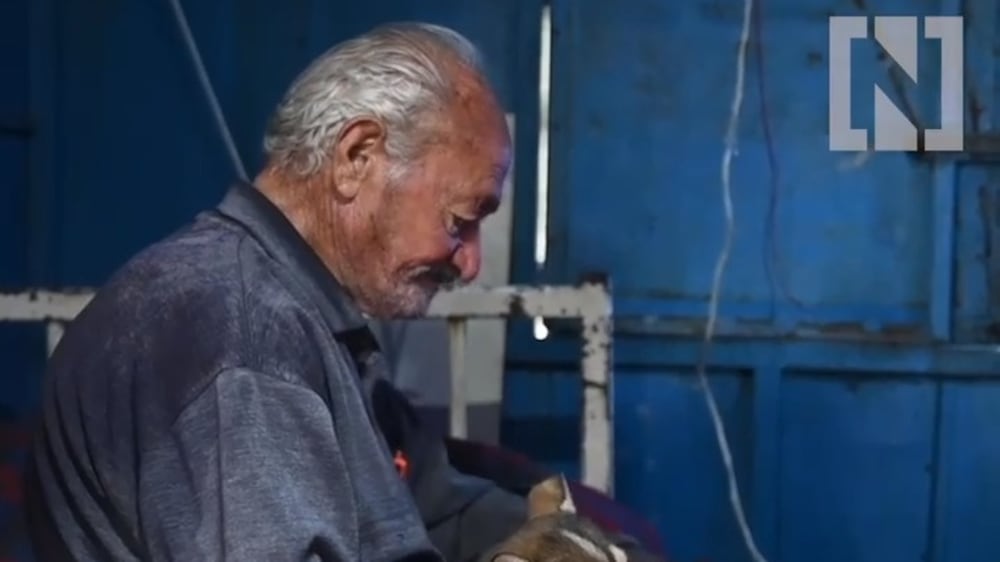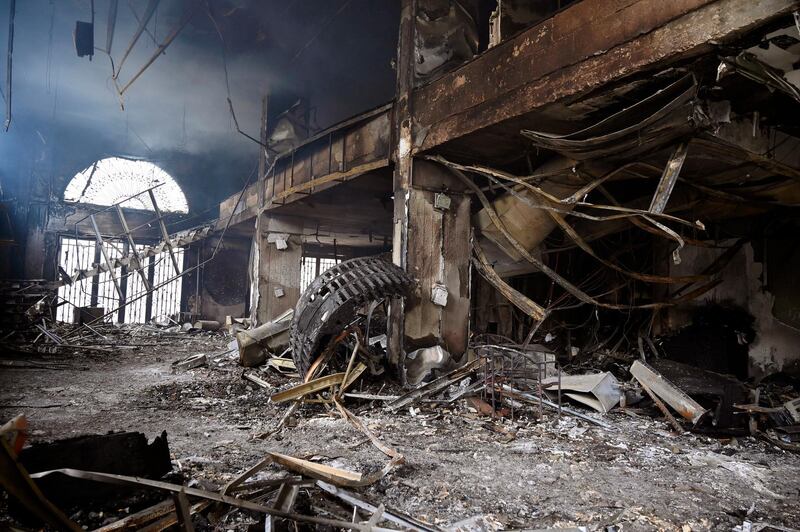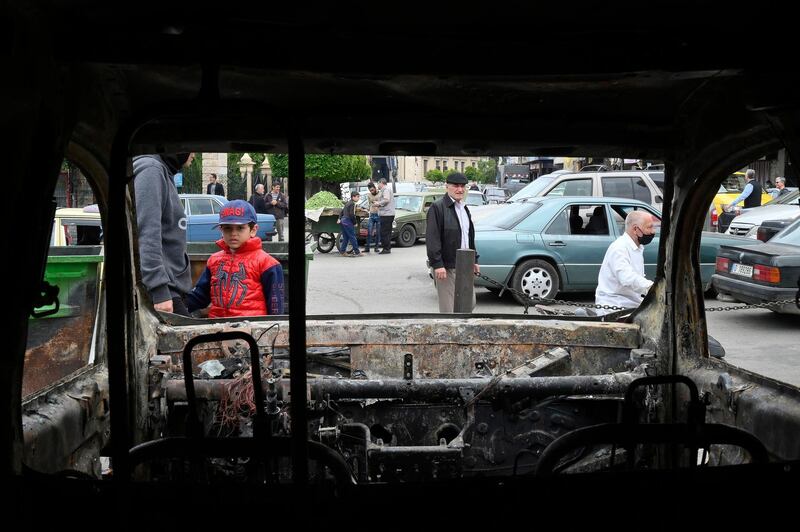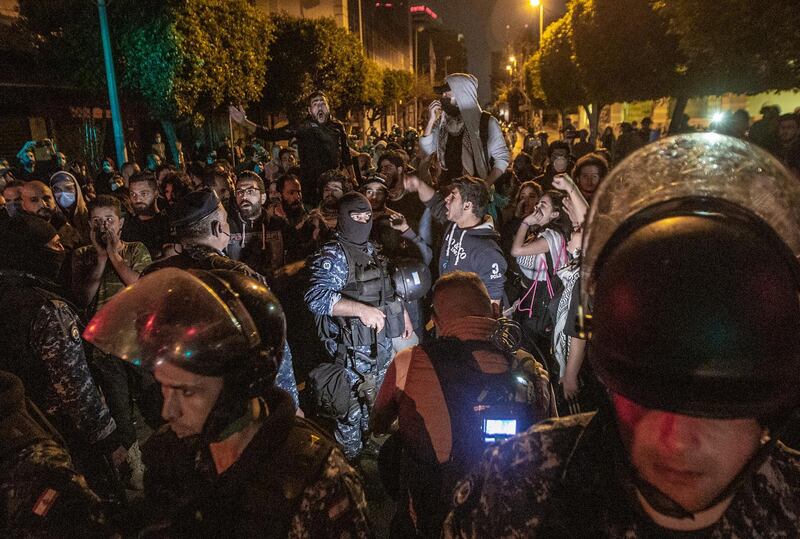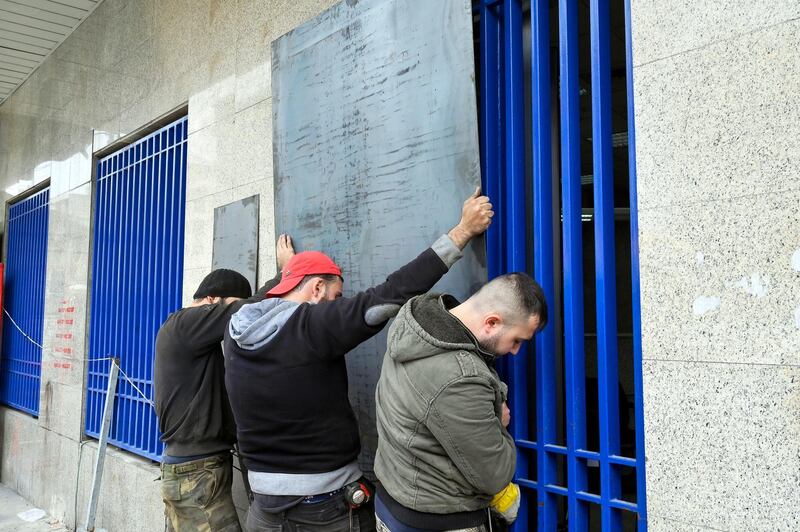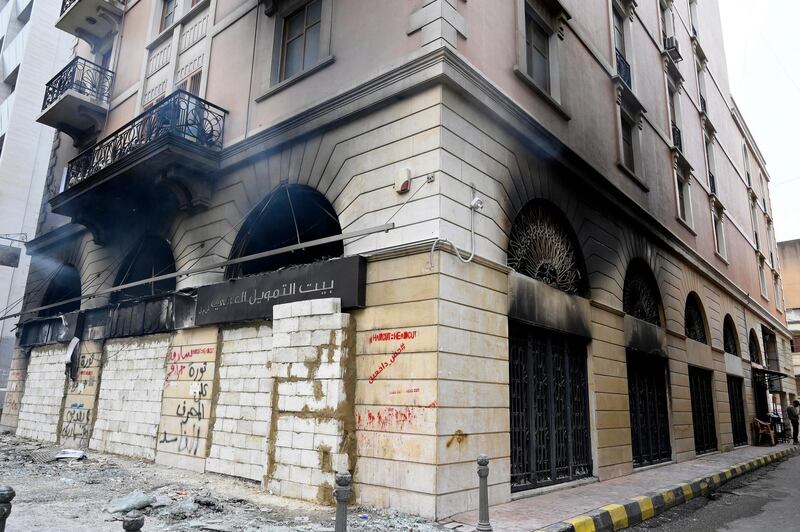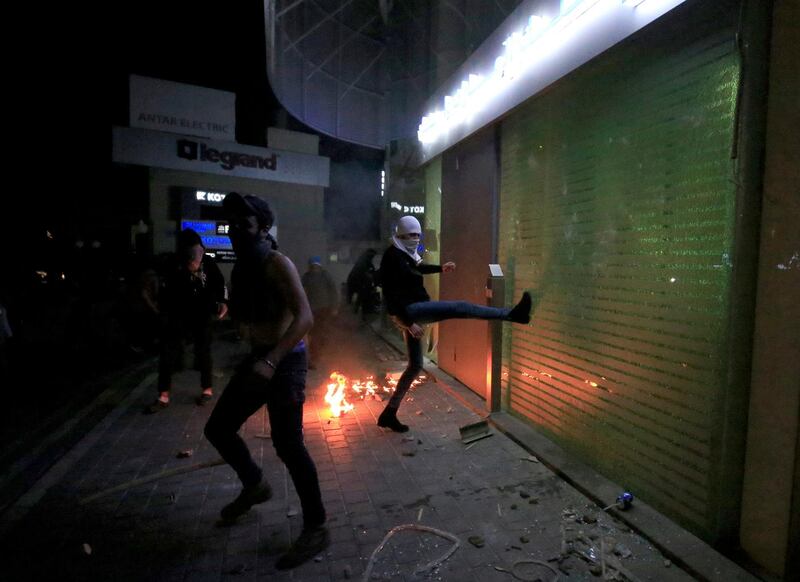As the number of dogs being abandoned or poisoned increases across Lebanon during the coronavirus crisis, one man is doing his part to look after the country's canines.
Mahmoud Youssef, 88, lives with about 80 dogs in a blue shipping container on the outskirts of Tripoli, in northern Lebanon.
Mr Youssef, who used to be a farmer, has always enjoyed the company of dogs.
Known locally as "Uncle Mahmoud", he rescues abandoned dogs in the area and puts them up for adoption.
But his pack has grown during the coronavirus pandemic and he has taken in more than 20 dogs in the past two months as Lebanon was hit by an outbreak that worsened its economic crisis.
“If those who threw dogs away had a speck of humanity, they would not leave these little creatures out in the street to die,” he said.
With the help of volunteers, Mr Youssef feeds the dogs with scraps of meat from local butchers, restaurants and slaughterhouses.
He also treats the dogs that are wounded or sick.
“People think dogs transmit disease, but that’s not true,” said Sally Lababidi, who used to work for an animal’s rights organisation.
“We [humans] transmit the disease.”
She said she dropped by Mr Youssef's home three times a week to inspect the health of the dogs, who live alongside a few cats and chickens.
Volunteers noticed a sharp increase in the number of dogs being poisoned and abandoned after a local TV report in late March suggested Covid-19 could be transmitted from pets to their owners.
This claim is disputed by scientists.
“There is ignorance in our society,” Mrs Lababidi said.
“Even before the coronavirus, people thought that animals spread disease.”
An online petition asking the Lebanese ambassador to the US, Gabriel Issa, to put an end to dog poisoning in Lebanon has collected more than 30,000 signatures.
But people are not only abandoning their pets due to fears of being infected – people are also running out of money.
“Now, because of [worsening] living conditions, people cannot eat and can’t feed their animals, so they throw them out, unfortunately,” Mrs Lababidi said.
Lebanon is reeling from the worst economic crisis in its history. People’s purchasing power has plummeted as the local currency is in a free fall.
“The coronavirus can’t come here. The dogs protect us,” Mr Youssef said.
